#André de Biase
Text
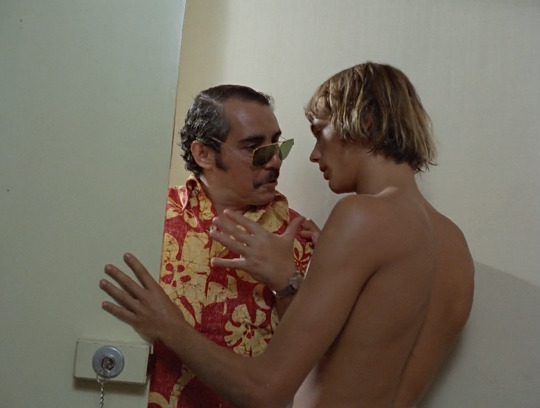

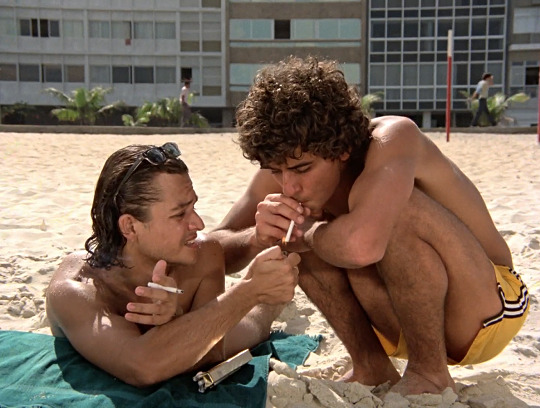
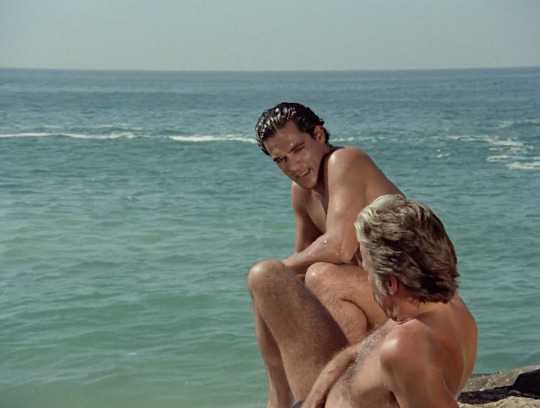



Nos Embalos de Ipanema (1978) // dir. Antônio Calmon
335 notes
·
View notes
Photo

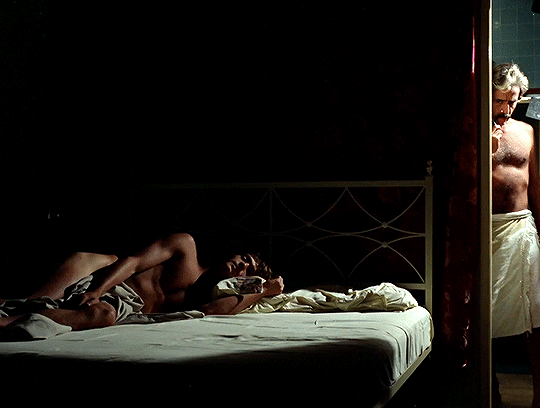
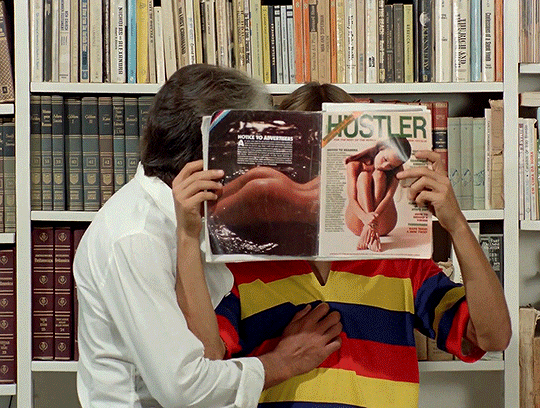

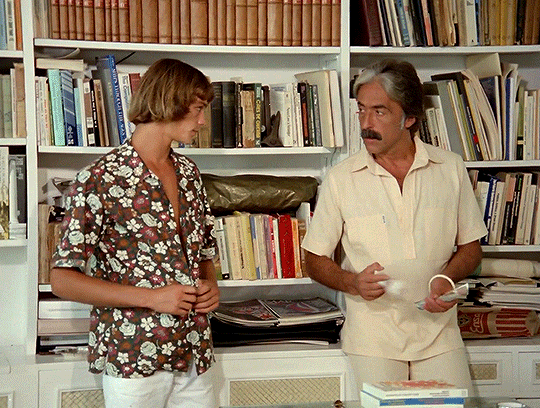





Nos Embalos de Ipanema (1978) dir. Antônio Calmon
#nos embalos de ipanema#movie#film#filmedit#andré de biase#filmgifs#cinemapix#dailyflicks#cinematv#tvandfilm#actor#men#brazilian movie#brazil#70s#70sedit#gifs#mine#*
883 notes
·
View notes
Text
THE EVENS ARTS PRIZE 2023

Exploring the critical imaginaries of AI
The Evens Arts Prize 2023 is dedicated to artistic practices that challenge prevailing systems of knowledge and experiments new alliances between living beings and machines.
The Jury is composed of Daniel Blanga Gubbay, Artistic Co-Director, Kunstenfestivaldesarts; Nicolas Bourriaud, Artistic Director, 15th Gwangju Biennale; Elena Filipovic, Director and Curator, Kunsthalle Basel; Matteo Pasquinelli, Associate Professor in Philosophy of Science, Ca’ Foscari University; Gosia Plysa, Director, Unsound. The Jury Chair is André Wilkens, Director, European Cultural Foundation.
Artistic Director: Anne Davidian, curator.
Focus of the Evens Arts Prize 2023
The widespread use of AI applications, particularly in the form of text-to-image generators and large language models, has sparked intense scrutiny and debate. These discussions, fueled by both excitement about their potential and concerns about their biases, bring to the forefront crucial questions about human subjectivity, autonomy, and agency.
Technical systems are deeply intertwined with social systems, shaping our lived experiences, aspirations, and politics. Together with artists, how can we better understand and address the impact of AI and the broader constellation of digital technologies and algorithmic politics? What new imaginaries and alliances can we cultivate between living beings and machines?
The new edition of the Evens Arts Prize seeks to highlight artistic projects that explore alternative cosmologies and epistemologies, question human exceptionalism, and shed light on issues such as surveillance, manipulation, extractivism, digital governance, justice, care, and responsibility in the age of machine intelligence. Of particular interest are practices that experiment with AI to challenge prevailing systems of knowledge and power asymmetries, mobilise technologies towards emancipatory community outcomes, and envision democratic futures.
The laureate is selected by an independent jury from a list of nominations put forward by representatives of major European cultural institutions.
The Nominators of the Evens Arts Prize 2023
Ramon Amaro, Senior Researcher in Digital Culture, Nieuwe Instituut, Rotterdam; Zdenka Badovinac, Director, Museum of Contemporary Art, Zagreb; Lars Bang Larsen, Head of Art & Research, Art Hub, Copenhagen; Leonardo Bigazzi, Curator, Foundation In Between Art Films, Rome; Mercedes Bunz, Professor Digital Culture & Humanities, King's College, London; Francesca Corona, Artistic Director, Festival d'Automne, Paris; Julia Eckhardt, Artistic Director, Q-02, Brussels; Silvia Fanti, Artistic Director, Live Arts Week /Xing, Bologna; iLiana Fokianaki, Founder, State of Concept, Athens; Cyrus Goberville, Head of Cultural Programming, Bourse de Commerce | Pinault Collection, Paris; Stefanie Hessler, Director, Swiss Institute, New York; Mathilde Henrot, Programmer, Locarno Film Festival; Nora N. Khan & Andrea Bellini, Artistic Directors, Biennale Image en Mouvement 2024, Geneva; Peter Kirn, Director, MusicMakers HackLab, CTM Festival, Berlin; Inga Lace, Curator, Latvian Centre for Contemporary Art, Riga; Andrea Lissoni, Director, Haus der Kunst, Munich; Frank Madlener, Director, IRCAM, Paris; Anna Manubens, Director, Hangar, Barcelona; Anne Hilde Neset, Director, Henie Onstad, Høvikodden; Nóra Ó Murchú, Artistic Director, transmediale, Berlin; Maria Ines Rodriguez, Director, Walter Leblanc Foundation, Brussels; Nadim Samman, Curator for the Digital Sphere, KW Institute for Contemporary Art, Berlin; Andras Siebold, Artistic Director, Kampnagel, Hamburg; Caspar Sonnen, Head of New Media, International Documentary Film Festival (IDFA), Amsterdam; Marlies Wirth, Curator for Digital Arts, MAK, Vienna; Ben Vickers, Curator, Publisher, CTO, Serpentine Galleries, London.
The Evens Arts Prize
The Evens Arts Prize honours artists who engage with contemporary challenges in Europe and shape inspirational visions for our common world. Far from reducing artistic practice to a function – whether a social balm or a political catalyst – the Evens Arts Prize supports aesthetically and intellectually powerful work that pushes the understanding of alterity, difference, and plurality in new directions, questions values and narratives, creates space for silenced or dissonant voices, and reflects on diverse forms of togetherness and belonging.
The biennial Prize is awarded to a European artist working in the fields of visual or performing arts, including cinema, theater, dance, music; it carries a sum of €15,000. The laureates are selected by an independent jury, from a list of internationally acclaimed artists, nominated by representatives of major European cultural institutions.
The 2011, 2019 and 2021 editions were curated by Anne Davidian and celebrated Marlene Monteiro Freitas, Eszter Salamon, and Sven Augustijnen as laureates of the main prize, while Eliane Radigue and Andrea Büttner received the Special Mention of the Jury.
More about the Prize
📷 from Atlas of Anomalous AI, edited by Ben Vickers and K Allado-McDowell, Ignota Books, 2020
1 note
·
View note
Photo

IVAN (André de Biase) – Filho de Márcia (Eva Wilma) e Átila (Mauro Mendonça) irmão de Yeda (Cristina Pereira) e Cris (Thais de Campos). É um bon-vivant e aproveita o dinheiro da família para sair com as jovens de sua idade. Gostaria de ver Yeda mais feliz, saindo com amigos. Não tem qualquer relacionamento fixo, até conhecer Vic (Ana Helena Berenguer), uma moça simples, pela qual se apaixona. Foto: memoriaglobo.globo.com – Novela Elas por Elas (1982) info: Wikipedia Colorização: @coresdopassado1 • • • • • #andredebiase #andredebiaselindo #andrédebiase #globo #globoplay #redeglobo #coloring #colorista #colorization #colorized #colorizedhistory #colorizationphotos #colorización #colorização #colorizacaodefotografia #brasil #brazil #colorizaçãodigital #colorist (em Brazil) https://www.instagram.com/p/CndTSNYLyq8/?igshid=NGJjMDIxMWI=
#andredebiase#andredebiaselindo#andrédebiase#globo#globoplay#redeglobo#coloring#colorista#colorization#colorized#colorizedhistory#colorizationphotos#colorización#colorização#colorizacaodefotografia#brasil#brazil#colorizaçãodigital#colorist
0 notes
Text
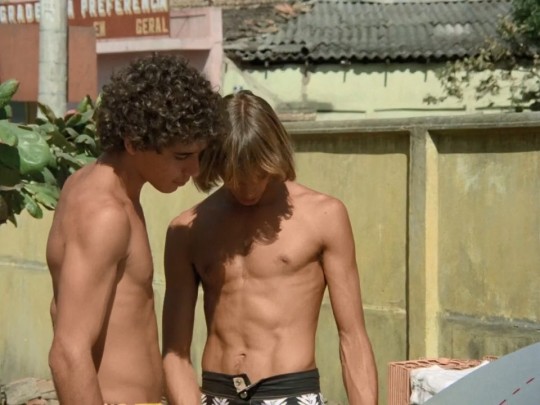
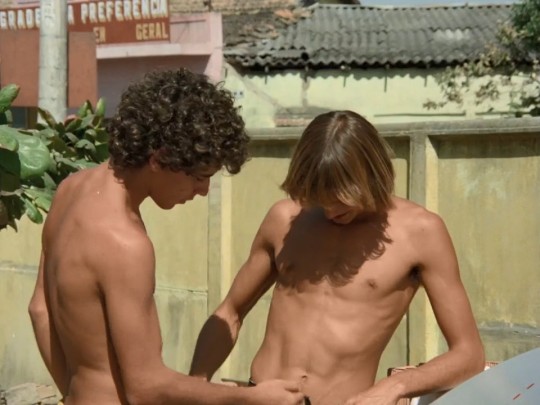
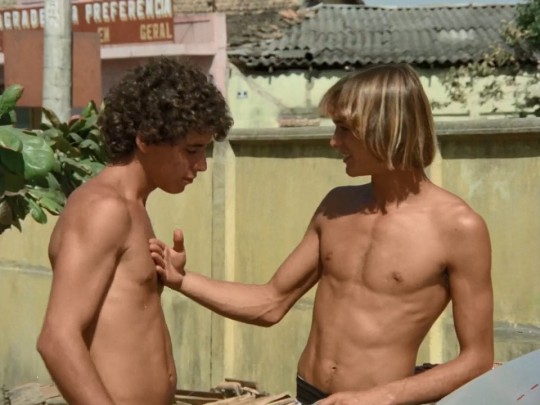
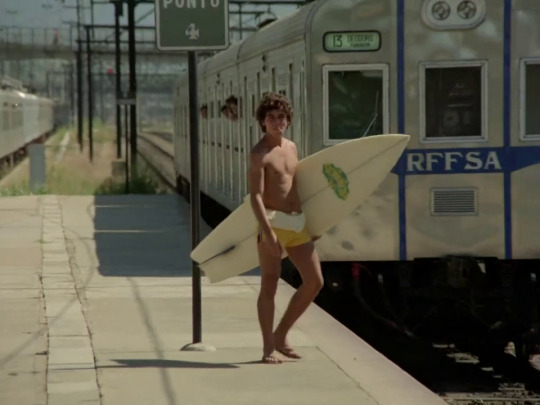
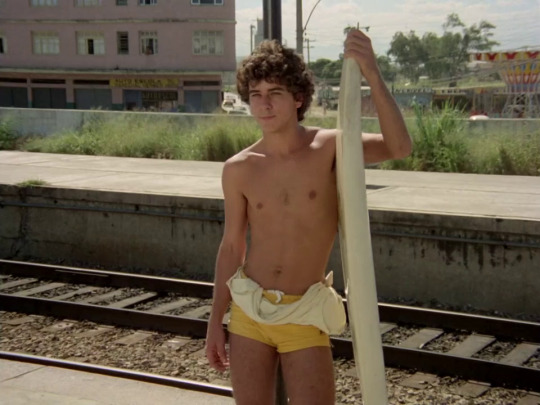
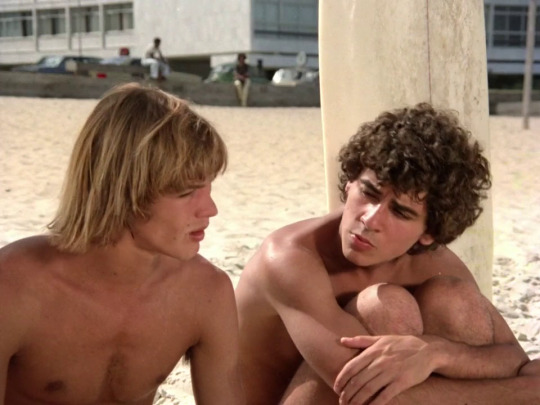
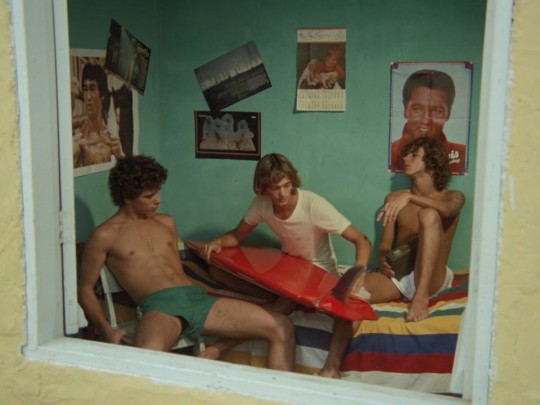
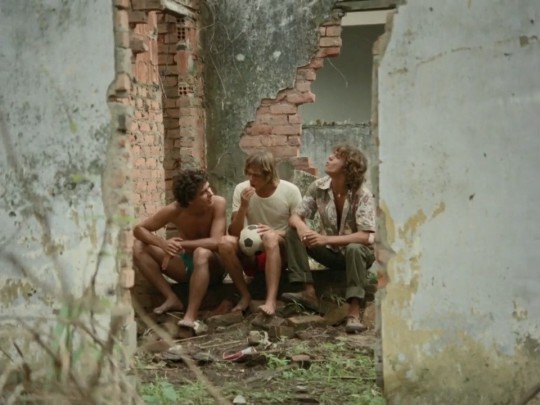
André de Biase, Ronaldo Santos (Nos Embalos de Ipanema, 1978)
#André de Biase#Ronaldo Santos#nos embalos de ipanema#cinema#movie#rio de janeiro#brazil#surfers#brazilian cinema#1970s#boys#guys#gay#homoerotic#bromance#guys on film
1K notes
·
View notes
Text
here’s my giant leftist to-read list for the next few years!!!
if a little (done!) it written next to the book, it means i’ve finished it! i’m gonna try to update this as i read but no promises on remembering haha
Economics/Politics
Property by Karl Marx
Communist Manifesto by Karl Marx (done!)
Wages, Price, and Profit by Karl Marx (done!)
Wage-Labor and Capital by Karl Marx (done!)
Capital Volume I by Karl Marx
The 1844 Manuscripts by Karl Marx
Socialism: Utopian and Scientific by Fredrich Engles
Synopsis of Capital by Fredrich Engels
The Principles of Communism by Fredrich Engles
Imperialism, The Highest Stage Of Capitalism by Vladmir Lenin
The State And Revolution by Vladmir Lenin
The Revolution Betrayed by Leon Trotsky
Fascism: What is it and How to Fight it by Leon Trotsky
In Defense Of Marxism by Leon Trotsky
The Accumulation of Capital by Rosa Luxemborg
Reform or Revolution by Rosa Luxemburg
Discipline and Punish by Michel Foucault
The Conquest of Bread by Peter Kropotkin
On Anarchism by Noam Chomsky
Profit over People by Noam Chomsky
An Introduction to Marxist Economic Theory by Ernest Mandel
The Affluent Society by John Kenneth Galbraith
The Postmodern Condition by Jean François Lyotard
Capitalist Realism by Mark Fisher
The Socialist Reconstruction of Society by Daniel De Leon
Anarchism and Other Essays by Emma Goldman
Socialism Made Easy by James Connolly
Race
Biased: Uncover in the Hidden Prejudice That Shapes What We See, Think, and Do
Blindspot by Mahzarin R. Banaji
Racism Without Racists: Color-blind Racism And The Persistence Of Racial Inequality In America by Eduardo Bonilla-Silva
How To Be Less Stupid About Race: On Racism, White Supremacy And The Racial Divide by Crystal M. Flemming
This Book is Anti-Racist: 20 Lessons on How To Wake Up, Take Action, And Do The Work by Tiffany Jewell & Aurelia Durand
The Next American Revolution: Sustainable Activism For The Twenty-First Century by Grace Lee Boggs
Tell Me Who You Are by Winona Guo & Priya Vulchi
The Fire This Time: A New Generation Speaks About Race by Jesymn Ward
Class, Race, and Marxism by David R. Roediger
America for Americans: A History Of Xenophobia In The United States by Erica Lee
The Politics Of The Veil by Joan Wallach Scott
A Different Mirror A History Of Multicultural America by Ronald Takaki
A People’s History Of The United States by Howard Zinn
Black Theory
The Wretched Of The World by Frantz Fanon
Black Marxism by Cedric J Robinson
Malcolm X Speaks by Malcolm X
Women, Culture, and Politics by Angela Davis
Women, Race, & Class by Angela Davis (done!)
Freedom is a Constant Struggle by Angela Davis (done!)
The Meaning of Freedom by Angela Davis
Sister Outsider by Audre Lorde
Ain’t I A Woman? by Bell Hooks
Yearning by Bell Hooks
Dora Santana’s Works
An End To The Neglect Of The Problems Of The Negro Women by Claudia Jones
I Am Your Sister by Audre Lorde
Women’s Liberation And The African Freedom Struggle by Thomas Sankara
W.E.B. DuBois Essay Collection
Black Reconstruction by W.E.B. DuBois
Lynch Law by Ida B. Wells
The Bluest Eye by Toni Morrison
Sula by Toni Morrison
Song Of Solomon by Toni Morrison
Beloved by Toni Morrison
Paradise by Toni Morrison
A Mercy by Toni Morrison
This Bridge Called My Back by Cherríe Moraga
Stamped from the Beginning: The Definitive History of Racist Ideas in America
So You Want to Talk About Race by Ijeoma Oluo
The New Jim Crow: Mass Incarceration in the Age of Colorblindness by Michelle Alexander
Black Feminist Thought by Patricia Hill Collins
Eloquent Rage: A Black Feminist Discovers Her Superpower by Dr. Brittney Cooper
I Know Why the Caged Bird Sings by Maya Angelou
Black Skins, White Masks and The Wretched of the Earth by Frantz Fanon
Killing of the Black Body
Revolutionary Suicide by Huey P Newton
Settlers; The myth of the White Proletariat
Fearing The Black Body; The Racial Origins of Fatphobia
Freedom Dreams; The Black Radical Imagination
How Capitalism Underdeveloped Black America
How Europe Underdeveloped Africa
An Argument For Black Women’s Liberation As a Revolutionary Force by Mary Anne Weathers
Voices of Feminism Oral History Project by Frances Beal
Ghosts In The Schoolyard: Racism And School Closings On Chicago’s South Side by Eve L. Ewing
Tears We Cannot Stop: A Sermon To White America by Michael Eric Dyson
Why We Can’t Wait by Martin Luther King, Jr.
Fatal Invention: How Science, Politics, Big Business, Re-create Race In The 21st Century by Dorothy Roberts
We Gon’ Be Alright: Notes on Race & Resegregation by Jeff Chang
They Can’t Kill Us All: Ferguson, Baltimore, and a New Era In America’s Racial Justice Movement by Wesley Lowery
The Common Wind by Julius S. Scott
Black Is The Body: Stories From My Grandmother’s Time, My Mother’s Time, And Mine by Emily Bernard
We Were Eight Years In Power: An American Tragedy by Ta-Nehisi Coates
American Lynching by Ashraf H. A. Rushdy
Raising Our Hands by Jenna Arnold
Redefining Realness by Janet Mock
When Affirmative Action Was White: An Untold History of Racial Inequality in Twentieth-Century America by Ira Katznelson
Whistling Vivaldi: How Stereotypes Affects Us and What We Can Do
Citizen: An American Lyric by Claudia Rankine
Left of Karl Marx: The Political Life Of Black Communist Claudia Jones by Carole Boyce Davies
Black Studies Manifesto by Darlene Clark
The Hate U Give by Angie Thomas
The Souls Of Black Folk by W.E.B. Du Bois
Darkwater by W.E.B. Du Bois
The Education Of Blacks In The South, 1860-1935 by James D. Anderson
The Half Has Never Been Told: Slavery And The Making Of American Capitalism by Edward E. Baptist
The Color Of Money: Black Banks And The Racial Wealth Gap by Mehrsa Baradaran
A Black Women’s History Of The United States by Daina Ramey Berry & Kali Nicole Gross
The Price For Their Pound Of Flesh: The Value Of The Enslaved, From Womb to Grave, In The Building Of A Nation by Daina Ramey Berry
North Of Slavery: The Negro In The Free States, 1780-1869 by Leon F. Litwack
Black Stats: African Americans By The Numbers In The Twenty-First Century by Monique M. Morris
Pushout: The Criminalization of Black Girls in Schools by Monique M. Morris
40 Million Dollar Slaves: The Rise, Fall, And Redemption of The Black Athlete by William C. Rhoden
From #BlackLivesMatter To Black Liberation by Keeanga-Yamahtta Taylor
A More Beautiful And Terrible History: The Uses And Misuses Of Civil Rights History by Jeanne Theoharis
Medical Apartheid: The Dark History Of Medical Experimentation On Black Americans From Colonial Times To The Present by Harriet A. Washington
Working At The Intersections: A Black Feminist Disability Framework” by Moya Bailey
Theory by Dionne Brand
Black Women, Writing, And Identity by Carole Boyce Davies
Slavery By Another Name: The Re-enslavement Of Black Americans From The Civil War To World War II by Douglass A. Blackmon
Black Like Me by John Howard Griffin
The Fire Next Time by James Baldwin
Some Of Us Are Very Hungry Now by Andre Perry
The Origins Of The Urban Crisis: Race and Inequality In Postwar Detroit by Thomas Surgue
They Can’t Kill Us Until They Kill Us by Hanif Abdurraqib
Beyond Containment: Autobiographical Reflections, Essays and Poems by Claudia Jones
The Black Woman: An Anthology by Toni McCade
Double Jeopardy: To Be Black and Female by Frances Beal
How We Get Free: Black Feminism and the Combahee River Collective by Keeanga-Yamahtta Taylor
Indigenous Theory
Colonize This! by Daisy Hernandez and Bushra Rehman
As We Have Always Done
Braiding Sweetgrass
Spaces Between Us
The Sacred Hoop by Paula Gunn Allen
Native: Identity, Belonging, And Rediscovering God by Kaitlin Curtice
An Indigenous People’s History Of The United States by Roxanne Dunbar-Ortiz
Why Indigenous Literatures Matter by Daniel Heath Justice
Highway of Tears: A True Story of Racism, Indifference, And The Pursuit Of Justice For Missing And Murdered Indigenous Women and Girls by Jessica McDiarmid
The Other Slavery by Andrés Reséndez
Seven Fallen Feathers by Tanya Talaga
All Our Relations: Indigenous Trauma In The Shadow Of Colonialism by Tanya Talaga
All Our Relations: Finding The Path Forward by Tanya Talaga
Everything You Wanted To Know About Indians But Were Afraid To Ask by Anton Treuer
Rez Life: An Indian’s Journey Through Reservation Life by David Treuer
Latine Theory
Borderlands/La Frontera by Gloria Anzaldúa
Open Veins of Latin America: Five Centuries of Pillage of A Continent by Eduardo Galeano
Inventing Latinos: A New Story of American Racism by Laura E. Gomez
De Colores Means All Of Us by Elizabeth Martinez
Middle Eastern And Muslim Theory
How Does It Feel To Be A Problem? Being Young And Arab In America by Moustafa Bayoumi
We Too Sing America: South Asian, Arab, Muslim, and Sikh Immigrants Shape Our Multiracial Future by Deepa Iyer
Alligator and Other Stories by Dima Alzayat
API Theory
Orientalism by Edward Said
The Making Of Asian America by Erika Lee
On Gold Mountain by Lisa See
Strangers From A Different Shore: A History of Asian Americans by Ronald Takaki
They Called Us Enemy (Graphic Novel) by George Takei
Yellow Peril!: An Archive of Anti-Asian Fear by Edited by John Kuo Wei Tchen and Dylan Yeats
Yellow: Race In America Beyond Black And White by Frank H. Wu
Alien Nation: Chinese Migration In The Americas From The Coolie Era Through World War II by Elliott Young
The Good Immigrants: How The Yellow Peril Became The Model Minorities by Madeline H. Ysu
Asian American Dreams: The Emergence Of An American People by Helen Zia
The Myth Of The Model Minority: Asian Americans Facing Racism by Rosalind S. Chou & Joe R. Feagin
Two Faces Of Exclusion: The Untold Story Of Anti-Asian Racism In The United States by Lon Kurashige
Whiteness
White Fragility by Robin Di Angelo (done!)
White Kids: Growing Up With Privilege In A Racially Divided America by Margaret A. Hagerman
Waking Up White by Deby Irving
The History of White People by Nell Irvin Painter
White Like Me: Reflections On Race From A Privileged Son by Tim Wise
White Rage by Carol Anderson
What Does It Mean To Be White: Developing White Racial Literacy by Robin DiAngelo
The Invention of The White Race: Volume 1: Racial Oppression and Social Control by Theodore W. Allen
The Invention of The White Race: Volume 2: The Origin of Racial Oppression in Anglo-America by Theodore W. Allen
Immigration
Call Me American by Abdi Nor Iftir
Create Dangerously: The Immigrant Artist At Work by Edwidge Danticat
My Family Divided by Diane Guerrero
The Devil’s Highway: A True Story by Luis Alberto Urrea
The Undocumented Americans by Karla Cornejo Villavicencio
Enrique’s Journey by Sonia Nazario
Tell Me How It Ends: An Essay In Forty Questions by Valeria Luiselli
Voter Suppression
One Person, No Vote: How Voter Suppression Is Destroying Our Democracy by Carol Anderson
Give Us The Vote: The Modern Struggle For Voting Rights In America by Ari Berman
Prison Abolition And Police Violence
Abolition Democracy by Angela Davis
Are Prisons Obsolete? by Angela Davis
The Prison Industrial Complex by Angela Davis
Political Prisoners, Prisons, And Black Liberation by Angela Davis
Just Mercy by Bryan Stevenson (done!)
The End Of Policing by Alex S Vitale
Invisible No More: Police Violence Against Black Women and Women of Color by Andrea J. Ritchie
Choke Hold: Policing Black Men by Paul Butler
From The War On Poverty To The War On Crime: The Making Of Mass Incarceration In America by Elizabeth Hinton
Feminist Theory
The Second Sex by Simone de Beauvoir
A Vindication of the Rights of Women by Mary Wollstonecraft
Bad Feminist by Roxanne Gay
7 Feminist And Gender Theories
Race, Gender, And Class by Margaret L. Anderson
African Gender Studies by Oyèrónkẹ́ Oyěwùmí
The Invention Of Women by Oyèrónkẹ́ Oyěwùmí
What Gender Is Motherhood? by Oyèrónkẹ́ Oyěwùmí
Feminism Without Borders: Decolonizing Theory, Practicing Solidarity by Chandra Talpade Mohanty
I Am Malala by Malala Youssef
LGBT Theory
Gender Trouble by Judith Butler
Performative Acts and Gender Constitution by Judith Butler
Imitation and Gender Insubordination by Judith Butler
Bodies That Matter by Judith Butler
Excitable Speech by Judith Butler
Undoing Gender by Judith Butler
The Roots Of Lesbian And Gay Opression: A Marxist View by Bob McCubbin
Compulsory Heterosexuality And Lesbian Existence by Adrienne Rich
Decolonizing Trans/Gender 101 by B. Binohan
Gay.Inc: The Nonprofitization of Queer Politics by Merl Beam
Pronouns Good or Bad: Attitudes and Relationships with Gendered Pronouns
Transgender Warriors
Whipping Girl; A Transsexual Woman on Sexism and the Scapegoating of Femininity
Stone Butch Blues by Lesie Feinberg (done!)
The Stonewall Reader by Edmund White
Sissy by Jacob Tobia
Gender Outlaw by Kate Bornstein
Butch Queens Up In Pumps by Marlon M. Bailey
Black On Both Sides: A Racial History Of Trans Identities by C Riley Snorton
Go Tell It On The Mountain by James Baldwin
Ezili’s Mirrors: Imagining Black Queer Genders by Omise’eke Natasha Tinsley
Lavender and Red by Emily K. Hobson
145 notes
·
View notes
Text
What Haiti's past tells us about the meaning of Resistance & “Revolution”
One of the realities of American education (public or private) is that the already abbreviated history of Black people in the United States is completely non-intersectional and without recognition of the larger international African diaspora with respect to (1) Black liberation or (2) American and New-world European colonial history. For instance, it is not commonly recognized that proportionally-most Black people from Africa who arrived in the “New World” due to the Atlantic Slave Trade did not live in North America but in the Caribbean, South and Central America. That is to say, if you were enslaved (or newly freed) outside of Africa at any point from the 16th through late 19th century outside of Africa, you would’ve had a one in three (or four) chance of living in the United States. Ask your average Black person on the street about this and it’s news. Ask your average non-Black person on the street about this and it’s even more surprising news. And why wouldn’t it be? Due to highly racialized educational systems, steadfast commitment to Black marginalization, indifference and/or Black & indigenous marginalization, most Americans who don’t actively seek this information have very limited knowledge about critical historical events. The American Revolution and details are reduced to incoherent romanticized narratives about English tea and “tyranny”. The Civil War is also vague and obtuse in its descriptions of Southern animus and economics. “Reconstruction” is a word that, admittedly, I did not learn (or had forgotten about) until an adult...and as a young person I fancied myself more knowledgeable than most about Black History through extra-curricular history lessons, elders, activities and educated parents. Even I was unaware of the sequence of Black history, resistance and triumph on critical historical events in Black American history.
Fast forward to the 2016 Presidential Election, the word “Revolution” and phrase “We need a Revolution!” was flagrantly thrown around and abused in public discourse by young (and older) people who undoubtedly grew up with the same biased and negligent public educational system I had grown up with and (in many cases) profoundly less extra-curricular historical exposure and education. As a culture, we would then start to see real gains in the #BLM movement and the zeitgeist towards radical change and structural reforms from race to finance and public safety. I was quite happy to participate in the resurgence of a resistance movement, especially one centering itself around issues of Black liberation. It’s what I’ve been around most of my life. What I wasn’t comfortable with however, was the use of the term “revolution” to describe it. At least not by White people (there’s a reason for that) and/or by younger people (of any color/ethnicity) who also undoubtedly had been steeped in the vapid romanticism of ‘revolutionary’ history taught to us by our primary and secondary US educational indoctrinations.
I have been in formal activism and education personally 30+ years now. Make no mistake, I absolutely support of “change” in our society, particularly towards social justice and Black liberation. And I have no wish to exclude White people or any other ethnicity from being enthusiastic activists or communicators of social/economic/political justice. That’s not my point. What my case is however, is that I’ve always been uncomfortable with the careless use of the term “revolution” in our national political conversations about race, justice, history and radical change. Particularly if that term is being appropriated for something other than racial equality of Black or indigenous people in this country. Historically, “revolution” has been inextricably tied to some aspect of Black resistance in the new world. To update the term in a way that erases or obfuscates deep racial inequities makes me uncomfortable in its lack of this historical context. Aside from that appropriative term however, the use of the sub-category or phraseology “radical change” in connection with “revolution” is problematic for its own reasons; ‘radical change’ and ‘radical ideas’ have become erroneously conflated terms in this way. Historically speaking, radical ideas have always endured much longer than the actual moment of revolution and change itself. In my lifetime there have been a number of “radical” changes; cigarette use and public smoking, seatbelts, recycling, eco fuels, Black people being on television and not talking “jive”, Gay/Bi and Trans people simply existing while not living a sad, diseased-ridden and isolated life, smoking weed and pre-existing conditions in health care are all things which were massive structural changes in society that took lifetimes to negotiate, deconstruct and implement. The idea came way before the actual change. And every one of those ideas were not radically “changed” in any one moment or by any one person. Instead those changes represented a patchwork of efforts by nameless, thankless individuals, organizations and multiple leaders whose work at times overlapped in various ways. Many of whom died or had to leave their advocacy before their desired change could be realized. Simply saying “radical change” and/or conflating change with charismatic leaders, “revolution” and politicians without acknowledging radical ideas, radical people (plural) and radical efforts over long stretches of time is a betrayal of history, the people working to change and correct it and those who have worked to correct it, for our sake.
On this day, January 1st, 2021, the 217th anniversary of the dissolution of Saint Domingue and the beginning of Haiti (Áyitì), the very first ever Black republic in the European/Western colonial world, named in honor of-and deference to-the indigenous Arawak/Taino “Indians” of the Caribbean, the process of what change really looks like is as profound as it ever was. Most of us have not studied this history in any appreciable detail-Black people included. Many might be surprised to know that Haitians came to Philadelphia, Charleston (S.C.) and New Orleans as a direct result of what happened in the late 18th and early 19th century and that there are Black and White Americans living there right now with traceable ancestry to this Caribbean island and the revolution that occurred there (until earlier this year I wouldn’t have known that either). Despite what Kanye West said, Black people did not ‘choose’ inferiority, slavery and colonial oppression. In fact, they resisted it and plotted revolution from the moment they boarded ships in West Africa. Especially in places like Haiti where many of the Africans arriving were literally soldiers, prisoners of wars and being replenished every 5-7 years because of the high death and production rates. There were hundreds of rebellions and revolts of enslaved Africans in the New world during the Atlantic Slave Trade; Haiti’s is just one of many. But Haiti’s is the largest, sustained revolt, with the most cultural, political and economic implications for its White, Black/African & African descended people -and- as people living in a “new” world trying to reconcile what it means to live together in a land post-slavery, post-European colonialism. To this day its people are a living testament to how difficult that work of Anti-Black resistance is in a global economy built around the presumption and instance of Black inferiority. The “project” of this revolution is yet unfinished.
Therefore in 2021, anyone studying, protesting, manifesting and politically agitating against our current socio-economic-political structures in America needs to study the Haitian Revolution in as much detail as possible. It is one of the biggest examples of how intricate, dynamic, long-suffering and difficult it is to actually perform “radical change”. During the pandemic I began (re) introducing myself to this subject by reading books, watching documentaries and listening to lectures outlining the layers of narrative involved in what would be come the Haitian Revolution; Macandal, the three “Commissions”, the Tricolor Commission, “Declaration of the Rights of Man”, the determinative links of the French Revolution, “Code Noir”, André Rigoud, British blockades, Spanish regiments, the “Coloureds”, returns to the plantations for Africans only, not “Blacks”(e.g. caste systems), trade embargos, Toussaint, Dessalines, etc....all confirming what was already apparent: change is hard, long and often takes generations.
If you are currently fighting for something, or against it, know that not one person or one act can or will likely “radically” change the reality. A “revolution” is a term not to be used lightly. When we de-romanticize it and “dig” into it we can begin to see more clearly how ugly and non-inevitable it’s results truly are. History tells us so-and we can learn from this history in a way that informs our present-day activism and fight towards justice of any kind, for any person, any ethnicity. Commit yourself and learn from those who have done it before you and recognize that the past will always be relevant to the present in resistance and change.
Below are some great resources start to learning more on the Haitian Revolution👇🏿:
“Revolutions” (Apple Podcast, a immensely detailed lecture series!)
https://podcasts.apple.com/us/podcast/revolutions/id703889772?i=1000358493623
PBS, “The Black Messiah: Macandal”
https://youtu.be/cHIEYx2_C9Q
“Haiti and the Atlantic World Reborn (New York Historical Society)”
https://youtu.be/dpbLMkAJFtE
“Noam Chomsky, Modern-Historical Political Commentary”
https://youtu.be/e1JWr03P9W8
“Haiti Journal, 100th Anniversary of US Occupation”
https://youtu.be/pILrdFJ683M
Happy New Year, Happy Haitian Independence Day and most importantly, Happy learning!!! 🤩🥂



#Haiti#Haitian Independence day#Macandal#Toussaint#L'overture#French Revolution#ayiti#Caribbean#afrocaribbean#caribbeanamerican#frenchcaribbean#American History#Revolution#Resistance#Activism#blm#blm protests#Haitian Occupation#noam chomsky#New York Historical Society#Documentary#revolutions podcast#atlantic slave trade#West Africa#Pearl of the Caribbean#saint domingue#Pirates#African Diaspora#Slavery#Black Republic
82 notes
·
View notes
Text
Happy Birthday Pauline
Happy Birthday, many happy returns and mazel tov @paulinedorchester
I made you a thing... Meta-fictiony based on your Andrew and Sam Headcanons. But it was your actual letters in your fic that gave it a physical form too. I hope you like it
Wierdly you have to right click and ‘View image’ for it to come up properly
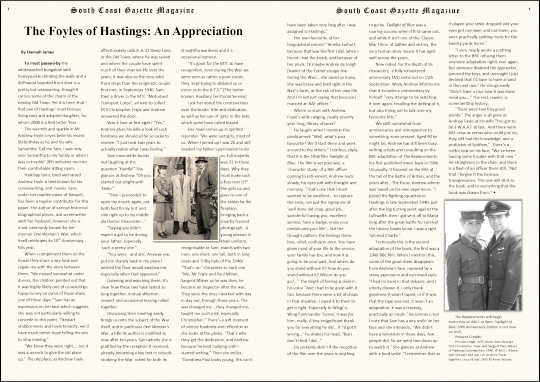
Transcript:
“The Foyles of Hastings: An Appreciation
By Hannah James
To most passers-by the whitewashed bungalow with honeysuckle climbing the walls and a driftwood boarded front door is a pretty but unassuming, though it carries some of the charm of the nearby Old Town. Yet it is here, that I find one of Hastings’ most famous living sons and adopted daughter, for whom 2008 is a Red-Letter Year.
The warmth and sparkle in Mr Andrew Foyle’s eyes belie his recent 90 birthday as he and his wife Samantha ‘Call me Sam, I was only ever Samantha to my family or when I was in trouble’ (89) welcome me into their comfortable sitting room.
Hastings born, bred and raised Andrew Foyle is best known for his screenwriting, and novels. Sam, under her maiden name of Stewart, has been a regular contributor for this paper, the author of various historical biographical pieces, and screenwriter with her husband. However she is most commonly known for her memoir One Woman’s War, which itself celebrates its 10th Anniversary this year.
When I compliment them on the house they share a wry look and regale me with the story between them. “We moved somewhat under duress, the children pointed out that it was highly likely one of us would go topsy-turvey on some of those stairs one of those days.” Sam has an expression on her face which suggests she was not particularly willing to concede to this point. “Stewart stubbornness and Foyle tenacity, we’d have much better hope telling the sea to stop moving.”
“We knew they were right,... but it was a wrench to give the old place up.” The old place, as Andrew Foyle affectionately calls it, is 31 Steep Lane, in the Old Town, where he was raised and where the couple have spent much of their married life over the years. It was also on the very solid front steps than this enigmatic couple first met, in September 1940. Sam, then a driver in the MTC “Motorised Transport Corps”, arrived to collect DCS Christopher Foyle and Andrew answered the door.
Was it love at first sight? “Yes.” Andrew gives his wife a look of such fondness we should all be so lucky to receive. “I just took two years to actually realise what I was feeling.”
Sam meanwhile bursts out laughing at the question “Hardly!” She glances at Andrew “Oh you started out alright with ‘Hello’”
“Then I proceeded to open my mouth again, put both feet firmly in it and sink right up to my middle ala Doctor Gloucester…”
“Saying you didn’t expect a girl to be driving your father, especially ’such a pretty one.”
“You were - and are...Anyway you put me sharply back in my place I wished the floor would swallow me, especially when Dad appeared.”
Listening and watching them, it’s clear how these two have lasted so long together, mutual affection, respect and occasional teasing rolled together.
Discussing their meeting easily brings us onto the subject of the War itself, and in particular One Woman’s War, a title its author is mollified to now after ten years. Sam admits she is gratified by the reception it received, already becoming a key text in schools studying the War, noted for both its straightforwardness and it’s occasional humour.
“It’s good for the MTC to have recognition, even during the War we were seen as rather a poor cousin, they kept trying to disband us or move us to the A.T.S.” [The better known Auxiliary Territorial Service]
I ask her about the controversies over the books’ title and dedication, as well as her use of ‘girls’ in the text, which some have called biased
Her head comes up in spirited rejoinder “We were just girls, most of us. When I joined up I was 20 and still needed my father’s permission to do so, full majority was 21 in those days. Why they must make such a fuss over it?” She gets up and goes to one of the tables by the fireplace, bringing back a smartly framed photograph. A young woman in khaki uniform, recognisable as Sam, stands with two men, one short, one tall, both in long coats and Trilby hats of the 1940s “That’s us:” she points to each one “Me, Mr Foyle and Paul Milner, Sargent Milner as he was then, he became an Inspector after the war. They were the ones I worked with day in day out, through those years. The war changed me ...they changed me, taught me such a lot, especially Christopher.” There’s a soft moment of silence fondness and reflection as she looks at the photo. “That’s why they get the dedication, and Andrew because he kept nudging until I started writing.” Then she smiles, “Goodness Paul looks young, this can’t have been taken very long after I was assigned to Hastings.”
Her own favourite of her biographical pieces? “Amelia Earhart, because that was the first I did, when I found I had the knack, and because of her pluck. Or maybe Andrée de Jongh [leader of the Comet escape line during the War]… she saved so many. She was brave and bold right in the Nazi’s faces, at the risk of her own life. And I’m not just saying that because I married an RAF officer.”
Where to start with Andrew Foyle’s wide ranging, nearly seventy year long, library of work?
He laughs when I mention this predicament “Well, what’s your favourite? We’ll start there and work around to the others.” I confess, shyly, that it is the 1958 film Twilight of Blue. The film is set post-war, a ‘character study’ of a RAF officer coming to retirement. Andrew nods slowly, his eyes soft with thought and memory. “That’s one that I most wanted to be excellent… to capture the ends, not just the rigmarole of ‘well done old chap, good job, wonderful having you, excellent service, have a badge, enjoy your medals and your life’… but the thought pattern, the feelings there, loss, relief, confusion even. You have given most of your life to the service, your family has too, and now it is going to be your past. And where do you stand without it? How do you stand without it? Where do you go?...” The depth of feeling is clear in his voice “And I had to be good with it too, because there were a lot of chaps in that situation. I owed it to them to get it right. Especially to WingCo, Wing Commander Turner, it was for him, really. A tiny insignificant thank you for everything he did… If I’d got it wrong…” he shakes his head, “But I don’t think I did…”
He certainly didn’t if the reception of the film over the years is anything to go by. Twilight of Blue was a roaring success when it first came out, and while it isn’t one of the ‘Classic War Films’ of battles and victory, the very human story means it has aged well across the years.
Now noted for the depth of its characters, a fully remastered anniversary DVD came out on 15th September. Wryly Andrew informs me that it includes a commentary by himself “very strange to be watching it over again, recalling the writing of it, but also trying not to talk over my favourite bits.”
We shift somewhat from anniversaries and retrospective to something more present. Aged 90 he might be, Andrew has still been busy, writing scripts and consulting on the BBC adaptation of The Replacements, his first published novel, back in 1946. Unusually, it focused on the RAF at the tail of the Battle of Britain, and the years after,. The focus, Andrew admits was based on his own experience, “I joined the fighting squadron in Hastings in late September 1940, just after the big turning point against the Luftwaffe, then I got sent off to Malta long after the great battle for survival the history books know. I was a right Tail-end Charlie.”
Technically this is the second adaptation of the book, the first was a 1948 BBC film. When I mention this, some of the good cheer disappears from Andrew’s face, replaced by a stony expression and narrowed eyes. “I had no hand in that debacle, and I utterly disown it. I only thank goodness it wasn’t taped, or if it was that the tape was lost. It wasn’t an adaptation, it was a travesty, practically an insult.” He simmers, but I note that Sam has a wry smile on her face and she interjects, “We didn’t have a television in those days, few people did. So we went two doors up to watch it.” She glances at Andrew with a fond smile ,“I remember that as it played your smile dropped and your eyes got narrower and narrower, you were practically spitting rivets for the twenty yards home.”
“I very nearly wrote a scathing letter to the BBC refusing them anymore adaptation rights ever again. But someone disabled the typewriter, jammed the keys, and overnight I just decided that I’d have to have a hand in the next one.” He shrugs easily “Didn’t have a clue how it was done mind you… “ The rest, reader, is screenwriting history.
“There were two tiny good points.” The anger is all gone as Andrew looks at his wife “You got to be a W.A.A.F at last. And there were RAF crew as extras who could just do, they still had the knowledge, and a profusion of Spitfires.” There’s a rueful look on his face, “We’ve been having some trouble with that now.” He straightens in the chair, and there is a flash of an officer there still, “Not that I forgive it the heinous transgressions. This one will stick to the book, and to everything that the book was drawn from.” •
The Replacements will begin tomorrow on BBC1 at 9pm. Twilight of Blue: 50th Anniversary Edition is out now on DVD.
Pictures Credits:
Previous Page: MTC driver Sam Stewart DCS Christopher Foyle and Sargent Paul Milner of Hastings Constabulary 1940. © M.O.I. Above: Sam Stewart and Sqn Ldr Andrew Foyle together circa VE day 1945 © Anne Woods.”
8 notes
·
View notes
Text
So about Hamilton. Everyone who knows me knows I adore Hamilton. However, I’m having a really hard time finding the same joy I found in the show when I saw it in SF barely 7 months ago. This is because regardless of the initial intent of the show and what Lin was trying to say, the show has been taken out of whatever the initial context was supposed to be and turned into a show about American idealism. This was done so the primarily white theatre elite don’t have to think about what the show is actually saying. I struggle to listen to Hamilton at all now, simply because it’s hard for me to enjoy a musical about the founding fathers when they’re the people who put the systems in place that are quite literally killing people who look like me.
But Hamilton isn’t the problem. It’s just the thing that’s making us take a long hard look at the actual one: the covert racism of theatre.
Just because things like Hamilton and Hadestown making spaces for more diverse casting doesn’t mean anything is changing beyond the stage. There’s a reason André de Shields didn’t win a Tony until last year, despite the fact that he’s been a theatre professional for 50+ years. There’s a reason that Pasadena Playhouse’s production of Little Shop of Horrors was such a huge deal. And it is that theatre has a racism problem. People like to pretend that it doesn’t, but it does. The worst part it that it’s a problem that exists at ALL levels of theatre too, not just on Broadway. Your local theatre is most likely just as guilty of racially motivated casting as any major theatre around the world. Theatre’s racism problem is a covert one, and that’s the problem. Casting is the problem. When someone who looks like me goes in to audition for a traditionally white roll, the moment I walk in the room, my color is already one strike against me, and I see it every time. Purposeful or not, I see it. And that needs to change. All change starts somewhere, and it usually starts local. We need to hold all aspects and levels of the theatre community accountable for its biases. If they refuse to acknowledge the covert racism that they-knowingly or unknowingly- perpetuate, then BIPOC artists need to create their own theatre community and produce their own works. BIPOC voices are powerful, and it’s time the theatre industry gets checked the same way we’ve been checking Hollywood and the music industry.
#hamilton#hamilton musical#theatre#musical theatre#racism in theatre#lin manuel miranda#broadway#covert racism#meddlers inc#if it werent for que meddling kids
24 notes
·
View notes
Text

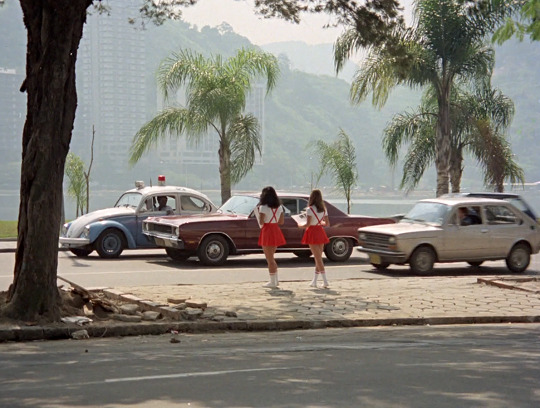



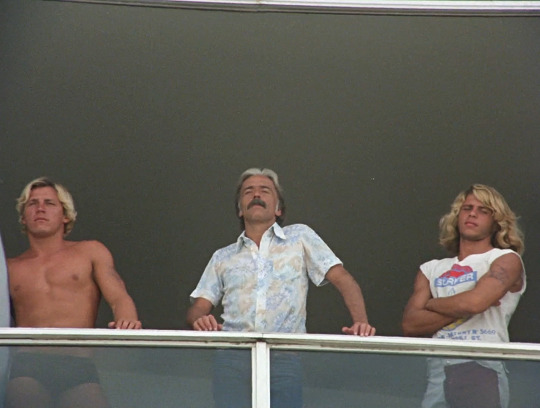

Nos Embalos de Ipanema (1978) // dir. Antônio Calmon
149 notes
·
View notes
Audio
According to Spotify, by most listened-to track of 2019 was a performance of Nikolay Golovanov’s ‘Cherubic Hymn’, from the album Russian Treasures by the London-based vocal ensemble Tenebrae.
How it came to be so is the confluence of several factors. Spotify added the track to my automatically/algorithmically generated playlist based on choral music. I really liked the track and started listening to the album it came from, although the algorithm* kept serving up just it**. I also included in a playlist for this post where I was trying to work through the mechanics and history of harmony in music - mainly I found it a good example of the chills I get from layered, harmonized voices, but also because I was and still am curious about how Russian music fits into or differs from the Western tradition.
The ‘Cherubic Hymn’ or Cherubikon is a hymn sung as part of the Orthodox liturgy, as the celebrants enter the altar area through a screen (known as an iconostasis), which makes it a little like the offertory hymn in the Western tradition, although it is based on a single text. A translation is below (with a transliteration, which is useful for listening along):
Let us represent the cherubim in mystic harmony, mystic harmony,
praise the Father, Son and Spirit,
raise our three-fold song, raise our three-fold song,
praise the Trinity, praise the Trinity, raise our three-fold song to the Trinity,
Let us now cast aside, cast aside, let us cast aside all this earthly life,
cast aside, cast aside, cast aside, all this earthly life.
Amen.
King of all, we may receive God the King, we may receive Him!
He who in glory enters in with mighty hosts of angels,
with mighty hosts of angels. Alleluia!
There are many performances of the Cherubic Hymn as a traditional Orthodox chant on Spotify, as well as various settings by later composers. Notably, among familiar Russian names, both Tchaikovksy and Rachmaninov have extensive bodies of sacred choral work. The latter’s Cherubic Hymn verges on the bombastic with the “King of all” (Yako de Tsarya) section, but in general the piece lives up to its name as ethereal, heavenly and angelic in character.
It’s the middle part that interests me the most, textually - “let us cast aside all this earthly life” (for they curious, the word translated as “cast aside” is otlozhim) - I’d like to try and write something a little deeper on the theme of renunciation in early Christianity, vs, say, Buddhism (or Foucault).
* sidenote: this year I noticed the tendency to use the a-word when it isn’t strictly necessary, informative or even correct, usually to describe ‘the output of a (digital) process over which I have little or no direct control’. In that sense, it is the opposite of autonomy - to borrow a phrase I discovered in André Gorz, it is ‘heteronomous’ or other-directed, only in this case the ‘other’ is not another person but a process. The crux, to me, is to what extent this process is itself autonomous - somewhere along the line between, in the popular imagination, ‘AI’ (at the limit of actual computer development) and more likely, in the heteronomous domain of a set of very human-defined parameters (though here still ‘control’ is a murky concept, a power-knowledge nexus of biases, incentives, workarounds, bugs, fixes…)
** sidenote two: the algorithm has since merged the ‘choral music’ playlist with the ‘string quartet’ playlists, which I’m not happy about at all. Notice how we don’t have any direct control over what goes into these playlists, no sliders, no conscious input (other than ‘play or skip’)? Heteronomy vs. autonomy...
1 note
·
View note
Text
tony predictions 2019.
under the cut are my final tony predictions for sunday. i’m posting them early because i’m going to be gone & busy all day tomorrow and rlly wanna get them out there. just a reminder that these are my opinions, i absolutely welcome more discussion and would love to talk about them w/ y’all. i did my best to put down my actual predictions, and not to be biased towards my favorite shows this season. just a heads up though, t//ootise has no rights on this blog. i’m going in the order as they are on the printable ballot i filled out from the tonys website. i’ll be doing these on who i think will win, and who could possibly be another potential winner.
best play: a.k.a this is tkam erasure and i’m never not going to be mad about it
who i think will win: the ferryman. i haven’t seen it but it’s doing well and got good reviews so!
who could possibly win: what the constitution means to me
musical:
who i think will win: hadestown. i think it’s the best all around musical this season based on the three major categories (book, score, directing)
who could possibly win: the prom. they’re a really close second i think.
revival of a musical:
who i think will win: oklahoma!
who could possibly win: the only other choice is kiss me, kate so!
leading actor in a play:
who i think will win: jeff daniels. he’s doing incredible work as atticus and i’m mad tkam didn’t get a best play nomination
who could possibly win: byran cranston, the network. i hear great things!
leading actress in a play:
who i think will win: elaine may, the waverly gallery. i don’t know much about her, but i hear that she’s pretty much locked in for the win so.
who could possibly win: heidi shreck, what the constitution means to me
leading actor in a musical:
who i think will win: i hate that i have to say this but i’m afraid santino fontana, tootsie is going to win this one. in a perfect world, reeve carney would be here.
who could possibly win: brooks ashmanskas, the prom
leading actress in a musical:
who i think will win: this is always a hard category for me and especially this year. i think this might be stephanie j. block’s year for her turn in the cher show, but my heart wants to say eva noblezada for hadestown. i’m putting both here and you can’t stop me.
who could possibly win: beth leavel, the prom
featured actor in a play:
who i think will win: gideon glick, to kill a mockingbird
who could possibly win: brandon uranowitz, burn this
featured actress in a play:
who i think will win: celia keenan-bolger, to kill a mockingbird
who could possibly win: CELIA KEENAN-BOLGER, TO KILL A MOCKINGBIRD
featured actor in a musical:
who i think will win: andré de shields, hadestown
who could possibly win: ephraim sykes, ain’t too proud
featured actress in a musical:
who i think will win: ali stroker, oklahoma!
who could possibly win: amber gray, hadestown
best book of a musical:
who i think will win: anaïs mitchell, hadestown
who could possibly win: bob martin & chad beguelin, the prom
best score:
who i think will win: anaïs mitchell, hadestown
who could possibly win: chad beguelin (lyrics) & matthew sklar (music), the prom
scenic design of a play:
who i think will win: rob howell, the ferryman
who could possibly win: miriam buether, to kill a mockingbird
scenic design of a musical:
who i think will win: david korins, beetlejuice
who could possibly win: rachel hauck, hadestown
costume design of a play:
who i think will win: toni leslie-james, berhardt/hamlet
who could possibly win: ann roth, to kill a mockingbird
costume design of a musical:
who i think will win: bob mackie, the cher show
who could possibly win: this one really fucking sucks but,,,,, william ivey long, tootsie
lighting design of a play:
who i think will win: jennifer tipton, to kill a mockingbird
who could possibly win: peter mumford, the ferryman
lighting design of a musical:
who i think will win: bradley king, hadestown
who could possibly win: peter mumford, king kong
sound design of a play:
who i think will win: scott lehrer, to kill a mockingbird
who could possibly win: eric sleichim, network
sound design of a musical:
who i think will win: nevin steinberd & jessica paz, hadestown
who could possibly win: drew levy, oklahoma!
direction of a play:
who i think will win: barlett sher, to kill a mockingbird
who could possibly win: sam mendes, the ferryman
direction of a musical:
who i think will win: rachel chavkin, hadestown
who could possibly win: casey nicholaw, the prom
best choreography:
who i think will win: warren carlyle, kiss me, kate!
who could possibly win: sergio trujillo, ain’t too proud
best orchestrations:
who i think will win: michael chorney & todd sickafoose, hadestown
who could possibly win: daniel kluger, oklahoma!
6 notes
·
View notes
Text
João Félix: The Golden Boy or Flop
Well, in light to the main topic of this/my first ever column, I just want to say, thank you for clicking and reading this piece. I hope you enjoy it.

If you don't already know him, you will have definitely have heard about Benfica and Portugal's current gem, João Félix. Hailed by many as the successor to Ronaldo, but how exactly does he match any team's criteria of an ideal player. In fact, what makes him the most wanted youngster in the world of football right now?
About our man
Born on the 10th of November 1999 in Viseu, João Félix is 5ft 9, right footed and he begun his career at a young age signing for FC Porto's academy "Dragon Force" before making a move to Benfica for free, joining their U17 side.
At 16 years old, he was already establishing himself within Benfica's Youth setup in Seixal, scoring 6 goals in 10 games (as well as an assist) in the UEFA Youth League and 3 goals in 12 appearances in the Ledman Liga Pro (Portugal's Second Division), impressing at the time manager, Hélder Cristóvão and earning him a move to Benfica B the following season. In the 2017/18 season, he got his shot for Benfica B, picking up 17 Ledman Liga Pro appearances with 4 goals and 5 assists, spending most season playing as a Winger and Attacking Midfielder.

João Félix playing for Benfica B vs Manchester United in the UEFA Youth League.
This season, saw a surprise to many Benfica fans. With a lack of strikers at the disposal of at the time manager Rui Vitória, he turned to Benfica B's talents, scooping up, you guessed it, João Félix. Benfica fans were excited to see what he could bring to the table, especially due to a recent saga between Jonas and Rui Vitória over his contract renewal causing Jonas to "become injured" for a long period of time and a recent signing Facundo Ferreyra who was yet to score a goal.
The Rise
25th of August, 3rd match of the season sees Benfica face Sporting CP in a Lisbon Derby at the Estádio da Luz. Sporting lead with a Nani penalty and with Facundo Ferreyra showing lack of threat and not scoring, comes off with Pizzi, Seferovic and the kid himself, João Félix come off the bench to replace both players respectively. On the 85th minute, the ball is knocked down to the right handside to Rafa, who whips it in first time, and who is there to meet his cross? João Félix. He rises the highest, heading the ball to the back of the net - sending Benfica fans into jubilation and scoring his first ever senior goal with less than 60 minutes of game time under his belt, making him the youngest player to ever score in a Lisbon Derby.

João Félix scoring the equaliser in the Lisbon Derby draw against Sporting. He became the youngest player to do so.
Fans were left begging to see him play more, but were left waiting a month before seeing him play again this time vs Desportivo Aves, where he scored from a sensational first time finish with his weaker left foot.
But, for manager Rui Vitória, this wasn't enough and insisted on playing Facundo Ferreyra, in fact, it was only on the 5th of December did Benfica fans see Félix in the starting lineup again, this time in the League Cup tie vs Paços de Ferreira, where he started as a right winger and scored a goal, this time with his right foot.
Rui Vitória would only use Félix as an "off the bench" player and didn't see much in him, occasionally bringing him on in some matches on the late stages of the match. Rui Vitória was stubborn, his lack of change and boring ideas and football caused his demise, seeing him sacked after a 2-0 loss vs Portimonense in early January. Many big names were linked to the Benfica job, from José Mourinho to Braga’s Abel Ferreira, but, Chairman, Luís Filipe Vieira turned to caretaker manager and at the time Benfica B manager Bruno Lage, his first test being Rio Ave in the League at home.

Benfica B manager Bruno Lage takes charge of the first team following the sacking of Rui Vitória.
From Bruno Lage's first lineup in charge, we saw 2 changes, a new formation and João Félix in the starting lineup. A refreshing 4-4-2 saw Benfica starting João Félix as a Shadow Striker behind Target Man Seferovic.

It wasn't a promising start to the game, Benfica were 2-0 down by 20 minutes. 7 minutes later, a Seferovic finish saw Benfica go 2-1 up and 4 minutes later, Seferovic crosses the ball in for João Félix who scores with his right foot. In the second half, on the 64th minute, he went on to score again, this time from a low Zivkovic cross saw another potent right foot finish from the golden boy, Benfica went on to win 4-2 in Bruno Lage's first game in charge of the Eagles.
This was the beginning to his success this season.
My Thoughts and Views on João
Let's cut to the chase, enough of me rambling on about Benfica, their matches and managers.
João's position is a Shadow Striker. At Shadow Striker is where he shines and has been at best, usually alongside a Target Man and partner in crime Haris Seferovic. But the 19 year old is versatile, he can also play as a Winger or Attacking Midfielder. His ability to play with both feet at such ease as well as heading and overall playmaking ability, is what makes him, in my opinion, the best Shadow Striker in the market, especially for his price tag. He is pacey, skilful and shows shades of a Rui Costa/Kaká with a bit of Cruyff in the mix when on the ball. When in front of goal, it is rare that you will see him take many touches before shooting, he has this Striker's drive and Poacher's finishing which is second to none. This goes without saying about his playmaking ability, he is not selfish and looks to assist when he can. This season he has scored a total of 15 in all competitions and assisted 7 goals. (as of 12th of April 2019)
He is not shy of a big game either, scoring and assisting against Sporting again in the Lisbon Derby during a 4-2 win in Alvalade in February and scoring vs Porto at the Estádio do Dragão in March on Benfica's 2-1 win in the Clásico.

Félix celebrating his equaliser over Porto.
When looking at the historial past and well known players seen at Benfica, the term flop tends to be placed on a youngster, Renato Sanches. My fear, is that like Renato Sanches and many other footballers at his young age, he joins a footballing giant, whom and who's fans will be very demanding and causing such young player not to perform to his full potential. Renato Sanches was (and still is) a very promising, showing fantastic ability to boss a midfield with great ease and dominate the opposition as well the ability of being able to score some screamers, but high expectations and extraordinary amounts of pressure has meant that Sanches has not been able to reach his potential just yet.

He is young, in fact, far too young to move clubs just yet in my opinion, and this might be biased, but he should be given time to develop as a player - or - be loaned back to Benfica to gain experience. It is easy for me, a soon to be 18 year old sit here and tell someone to wait rather than making a move to a dream club like Real Madrid, Barcelona, Manchester United or Liverpool, but at the end of the day, I can't blame him if he does!
National Worries
On the 15th of March, Félix earned his Portugal call-up, but is yet to make an appearance after getting injured in the training ground. What Portugal also have in their hands, is a Rui Vitória clone - by the name of Fernando Santos. Like Vitória, the problem with Fernando Santos is the unwillingness to change and experiment within the 11. Often Santos will play the same players in the same boring formation as he has been for the past 4/5 years, and its frustrating when you have a golden generation on their way, yet he insists on playing Pepe, Rui Fonte, André Silva, Guerreiro to name a few. I will explain Portugal's international worries and problems in a new column in the foreseeable future.

Back to Félix, I see him lining up like he does at Benfica, in a 4-4-2 next to Ronaldo, with Bernardo Silva and Bruno Fernandes on their respective wings, Ruben Neves and William Carvalho in the midfield. Ruben Dias and Ferro at centre backs, Guerreiro (as much as I dislike him) and Cancelo at fullbacks with Rui Patrício in goal. This is of course how I would want us to start, knowing Fernando Santos, Félix will be used as an utility player instead!

The Final say
Last night, we saw the lethal and potent golden boy Benfica have in their hands. Félix scoring his first-of-many hat-trick vs Frankfurt, whilst also grabbing an assist making him the youngest player to do so since Sergio Aguero in 2007. Much to the success João Félix is having, is also down to Bruno Lage who has revolutionised this Benfica side and slotted him in a key "Shadow Striker" role, as well as Benfica's famous Seixal academy who are yet again on the road to produce a world class talent. I personally think that he should stay at Benfica for another season, or, if he decides to join football giant, to be loaned back out to Benfica before making the step up, as well as to gain experience.
An €120m release clause is seen as a bargain in today's market, but will prospective buyers be willing to give him a chance and patience before considering him another flop? Can a 19 year old hold on the urge to move to a footballing giant or will he roll the dice and look to move away? We will have to wait and see.

Thanks again for reading. If you have any questions or suggestions feel free to message me on Twitter: @tiagoalex1904.
2 notes
·
View notes
Text


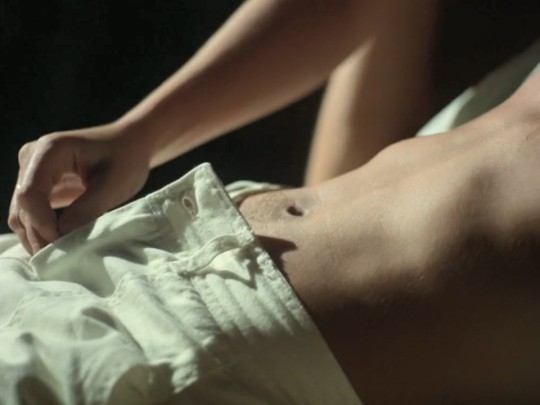
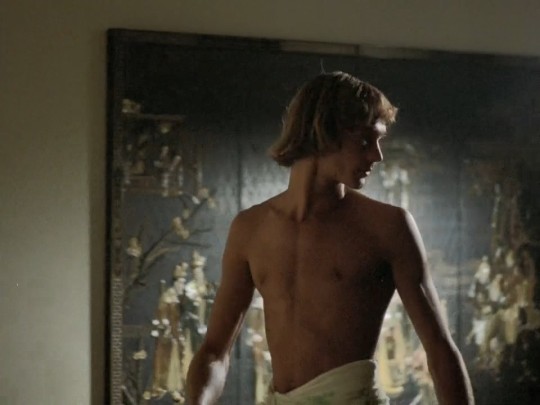
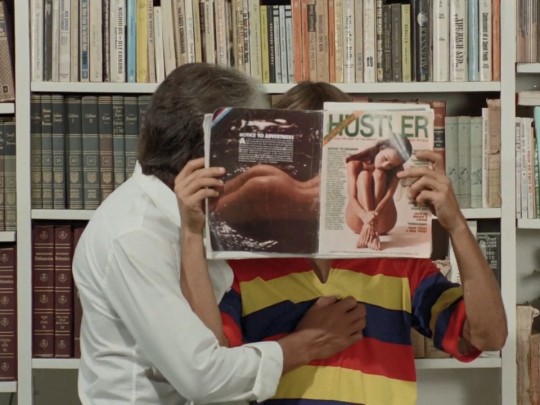
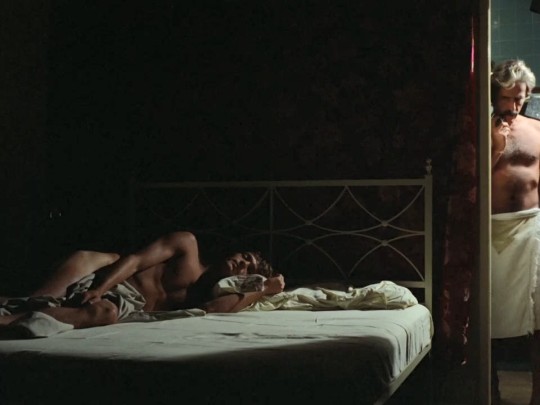
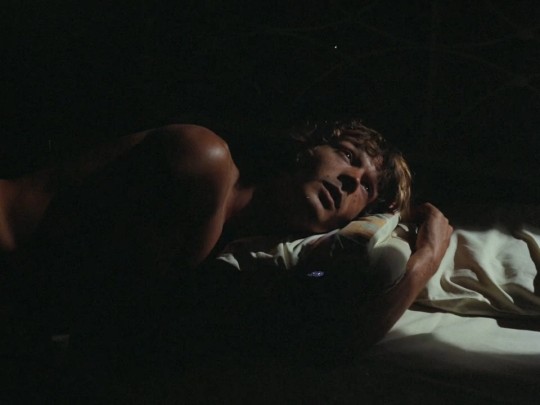
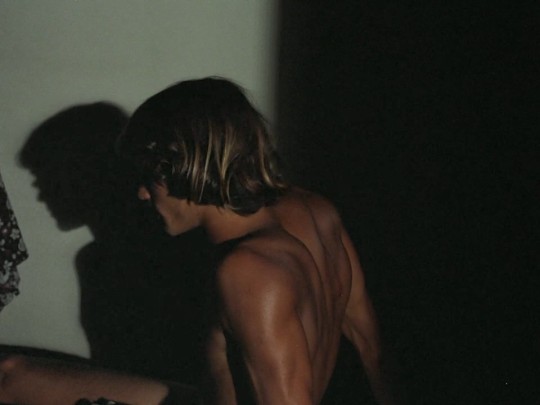
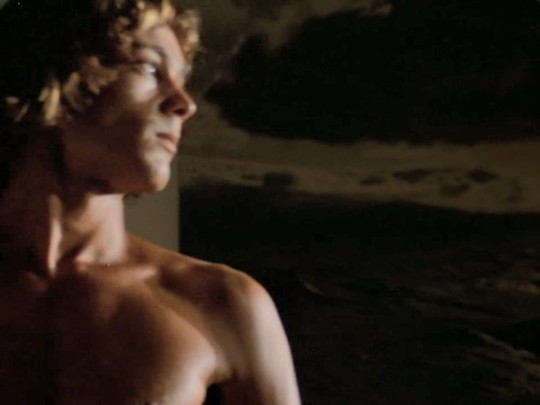
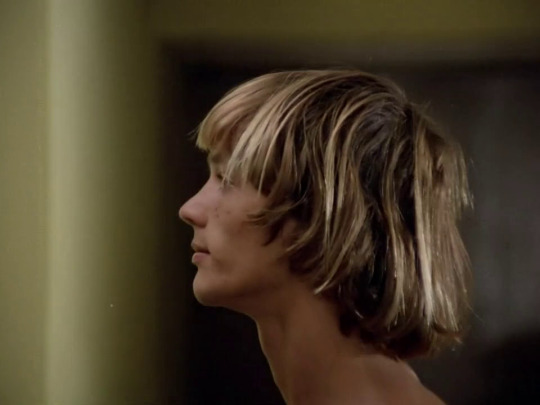
André de Biase (Nos Embalos de Ipanema, 1978)
#André de Biase#nos embalos de ipanema#1970s#surfer#cinema#rio de janeiro#movie#brazil#brazilian cinema#boy#guys on film#gay#gay couple#hustler
296 notes
·
View notes
Photo

On a beau dire on a beau faire c'est toujours le passé qu'on préfère. André de Biase #bibliobibuli #leitura #livros #leitores #frases #citações #pensamentos https://www.instagram.com/p/Cbakp4irk0j/?utm_medium=tumblr
1 note
·
View note
Text
Fantômas
by Jindřich Štyrský

(Cover by Jindřich Štyrský)
In one of his surrealist texts, Robert Desnos recalls when the first Fantômas books began to appear in Paris, remembering their alluring titles and spellbinding, color covers: “A new volume came out each month … Le Mort qui Tue … Le Pendu de Londres … La Fille de Fantômas … we eagerly awaited more …”
It is no accident that Fantômas returns in the memories of one of the leading young French poets. Fantômas passed through an entire era of French poetry, and for a time was the literary sensation in France. He passed through the work of Apollinaire, Max Jacob, Philippe Soupault, Jean Cocteau, P.M. Orlan, Paul Dermée, and André Breton; Francis Poulenc began to compose the music to a libretto freely adapted from Fantômas, just like André Favory based the blood-soaked work of his early period on ideas inspired by his reading of Fantômas. In France, where opposites and extremes rub shoulders without destroying one another, where in the realm of poetry tradition lives side by side with Dada, where there are no phony biases, the best poets were able to love the fantastic stories of the “legendary outlaw Fantômas whose name filled the whole world with dread,” while feeling no shame that these editions of “pulp fiction” occupied a place on their shelves next to the immortal Proust and Balzac.
How this multivolume series got its start is the stuff of legend. Those in the know say – not in the academic tomes of literary history of course – that several different authors participated in writing the Fantômas series, among whom were included Apollinaire, Max Jacob, André Salmon, and Pierre Reverdy. Others claim that Fantômas was created by an unknown, washed-up journalist who consulted firsthand with criminals and hookers of the Parisian demimonde. The most likely version is the one supported by the Paris publisher Arthème Fayard, who claims that Fantômas was the brainchild of Pierre Souvestre and Marcel Allain (whose existence is shrouded in mystery), with the former disappearing about ten years ago somewhere in South America and the latter falling in the Great War. – The Fantômas books contain such a concentration of horror, blood, corpses along with so much poetry, moonlit nights, garden parties, the sea, and maidenly charm, that it is hard to imagine it was written by a mediocre writer/storyteller. The fact that the Fantômas tales are often based on contemporary and historical crimes, sensational trials, and official and classified police records clearly suggests that it was written by someone with inside information. Some of the volumes are analogous to actual great crimes, such as: the Gerard case of 1911; the infamous “corpse in the suitcase” of 1889 (Lille); the crime on rue Montaigne (the Pranzini Affair); “the severed hand” found at Aix-les-Baines in 1903; or the so-called “broken dagger affair” (Meynier and Madeleine Delvigne) from 1909, which had its finale one fine morning on Place de la Roquette.* The real and tragic sources of these fantastic stories and mysteries shimmer on the pages of Fantômas, their horror and novelty bringing to mind the magnified details of insignificant things, the sight of which leaves us quaking in terror.
Only after the success of Fantômas – a success of the literary and the universal – after the popularity it enjoyed in France, several other French authors – Leblanc, Marcel Nadaud, André Fage, Maurice Pelletiere, et al. – began to adopt this form and mode to write crime stories. The English and the Americans also adopted the template of this new type of novel – Sapper, Martyn, and Packard (see The Grey Seal) – but they have produced only a pedestrian form of detective fiction.
* Prisons were located on both sides of rue de la Roquette and the site witnessed myriad executions.
• An outtake from Dreamverse by Jindřich Štyrský (Twisted Spoon Press, 2018). It was originally published in Czech in Odeon, literární kurýr, no. 8, May 1930, and is translated here by Jed Slast. All rights reserved.
3 notes
·
View notes